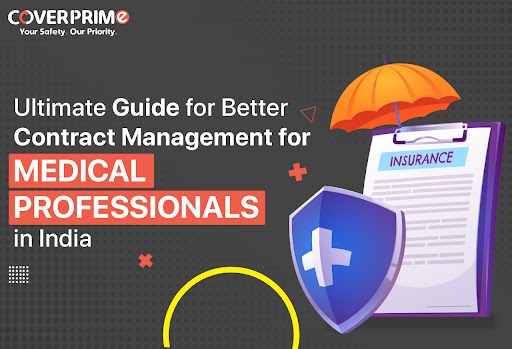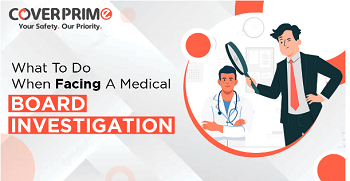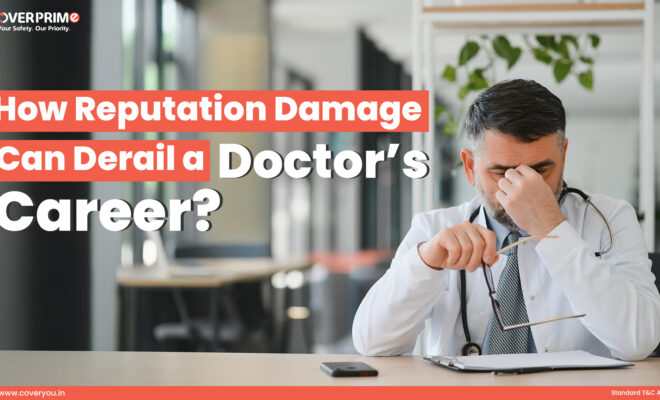How Defamation Made By a Patient Can Harm Doctor’s Profession?

Over the past Decade, the rise of modern life also marked the rise of the digital era and age of social media. With the rise of social media and online platforms, information spreads rapidly, making it easy for dissatisfied patients to share their grievances. Similarly, freedom of speech has transitioned from print to electronic media. Unfortunately this freedom can sometimes lead to exaggerated or false claims, which can damage a doctor’s professional standing and practice.
Understanding Patient Defamation:
Defamation occurs when someone makes false statements that harm another person’s reputation. In the context of healthcare, patient defamation happens when patients post exaggerated or misleading reviews, comments, or videos that negatively portray a doctor. These statements can quickly reach a wide audience, causing long-term damage to a physician’s career and their ability to attract new patients.
For example, if a patient claims that a doctor ignored their symptoms or provided improper care, this could dissuade others from seeking treatment from that doctor. However, the situation might not be as straightforward as the review suggests. The patient might leave out crucial details, such as their own health history or their intentions during the consultation. Yet, these incomplete stories can lead to misjudgments about a doctor’s professionalism.
The Rise of Online Reviews and Social Media:
The way people choose healthcare providers has changed significantly with the growth of online platforms. Patients no longer rely solely on referrals from family and friends. Instead, they browse online reviews and social media posts to make decisions about where to seek care. In India, Instagram is the fastest-growing social media platform, with 516.92 million active users, followed by Facebook with 492.70 million. This digital shift has significantly transformed how information is shared, but it also brings risks. The rise of social media has made it easier for false claims and defamatory content to spread quickly. A single negative comment, whether based on misinformation or exaggerated claims, can now reach millions in an instant, affecting a doctor’s career and trust among patients.
Patients use platforms like Google Reviews, Facebook, and medical rating websites like RateMDs.com, to share their experiences. While constructive feedback can help doctors improve, inaccurate or defamatory statements can severely harm a physician’s practice. The issue becomes more complicated because doctors have limited ways to respond publicly without violating patient privacy. Therefore, even a false accusation can linger online and continue affecting their professional image.
Why Patient Defamation is Especially Harmful to Doctors:
Doctors are trusted professionals who provide essential services, often during times of great need. When someone accuses a doctor of negligence or malpractice online, it can create doubts about their capability and integrity. This is not only harmful to the doctor’s career but can also affect their mental health and confidence.
Unlike other businesses, medical practices are built on trust. If that trust is broken, patients may hesitate to seek care from a doctor accused of wrongdoing. This can lead to fewer appointments, a decline in practice revenue, and, in some cases, the need to close the practice altogether. Additionally, these accusations can strain relationships with existing patients and healthcare networks, making it difficult for doctors to rebuild their reputations.
One of the main challenges doctors face when dealing with defamation is how to respond. Due to strict privacy laws, healthcare professionals are limited in what they can say publicly. Even a simple reply could be seen as a violation of patient confidentiality. This puts doctors in a difficult position where they must decide whether to remain silent or risk further legal complications. Silence, however, is often interpreted as an admission of guilt by the public. This can cause even more harm to a doctor’s reputation.
Legal Aspects of Patient Defamation:
Not all negative statements online are defamation. For a statement to be considered defamatory, it must be false, damaging, and made without proper justification. For instance, if a patient falsely claims that a doctor misdiagnosed them or prescribed incorrect medication, it could meet the legal criteria for defamation if proven to be untrue.
However, proving defamation can be a complex and expensive process. Legal action requires evidence that the statement was not only false but also that it led to measurable harm. Many healthcare professionals are hesitant to pursue legal action because it could draw more attention to the negative content and further harm their image.
Now the question arises where’s the solution?
The answer lies in CoverPrime!
What CoverPrime Offers?
In the face of today’s digital landscape, CoverPrime stands as a trusted partner with a proven track record of consulting 100,000 doctors and successfully resolving more than 2,000 claims and queries. CoverPrime offers complete protection against Social Media and Patient Defamation risks. Our comprehensive policy offers Legal Response to social media posts, comments, reviews, Defamation notice response and resolution, ensuring doctor’s reputation and financial Security is protected. When you choose CoverPrime, you are not only getting protection against defamation, but you are also gaining a partner who is dedicated to your success and loves to protect you and your profession from any harm.














